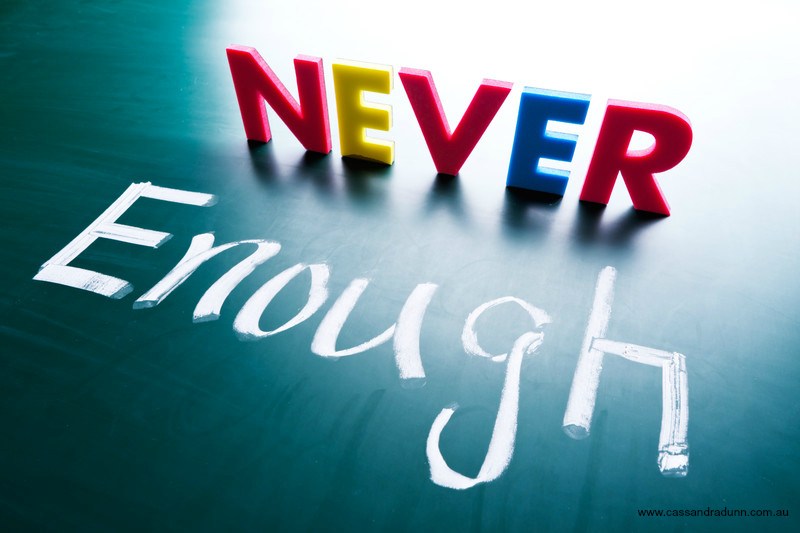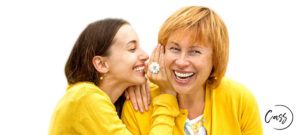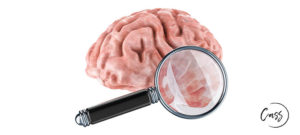
What if we all had a secret…?
Dr Anthony Grant posed this question to our class in 2003 when I was a student in his Masters of Coaching Psychology program at Sydney University. Tony was discussing the things that cause us to feel ashamed or afraid of rejection (at least I think he was – it was a long time ago now!) He mentioned the prevalence of ‘imposter syndrome’ among some of the most successful leaders in the business world, and just how common it is at every level of society and every stage of life, to feel like we are somehow inferior.
I was young at the time and had just left a job in an organisation where I’d been one of the youngest members of the management team (by about two decades!) Instead of feeling proud of that position, I’d mostly felt like a kid playing at the grown up’s table.
And so, what I recall most vividly about Tony’s seminar, was how struck I was by this idea that no matter what kind of job someone has or how much money they make, no matter how much posturing and pretending we might do, underneath we’re all the same; we’re all vulnerable. We all struggle.
In the decade or so since that classroom discussion, this idea of universal suffering, that we are all swimming in the same sea of self-doubt and that we all have a version of the ‘not enough’ story playing on repeat in our minds has been presented to me over and over again. In many ways it has been liberating and life-changing.
I’ve also learned that it isn’t enough to grasp this idea with your intellect alone. The reason Brené Brown’s 2010 TED talk on vulnerability went viral is not just because people related to the idea of imperfection, but because we were touched by her authenticity. What has ensured her books became bestsellers was not her explanation of the theory of shame, but her willingness to display her own vulnerability in a very public way.
To be able to move from understanding and relating to an idea of common humanity (i.e., that we are all struggling together) to having that understanding change how you live your life is where the real challenge lies, and where the greatest personal rewards are to be found. In his autobiography, The Fry Chronicles, Stephen Fry referred to
“the distance between the mask of security, ease, confidence and assurance I wear… and the real condition of anxiety, self-doubt, self-disgust and fear in which much of my life then and now is lived.”
Apparently, he’s not the only one. If we all had the same secret, it would be that we each believe to fit in and be accepted we need to be someone other than who we truly are, because if anyone knew us properly… I mean the real, imperfect, flawed version of ourselves, they would judge and reject us.
Our universal suffering looks a lot like shame. It might show up when you lose your temper with a child; or when you are still single while everyone else is coupled up; when you feel stuck in a dead-end job while everyone around you is pursuing a worthy career. This is the pain of comparing yourself to others and coming up short every time. It also manifests in the form of private battles with food, alcohol, perfectionism, or depression.
Rather than own up about our flaws, or talk about the shame of feeling not good enough (or smart enough, or thin enough, or wealthy or successful enough), we set about using a bunch of strategies to protect us from being rejected. Brené Brown calls this ‘hustling for worthiness’. She says that:
If we spend a lifetime trying to distance ourselves from the parts of our lives that don’t fit with who we think we’re supposed to be, we stand outside of our story and have to hustle for our worthiness by constantly performing, perfecting, pleasing, and proving.
If it’s true that we all have the same secret, then we have all hustled for worthiness at one time or another. In fact, I think every day we’re hustling, and there is a real danger that we’re becoming more and more disconnected and isolated in the process. Every now and again, we might get a glimpse into someone else’s private world and we’re fascinated to compare ourselves and see how we measure up. When someone willingly opens up and admits to their feelings of inadequacy, our relief is palpable. And in that moment of shared vulnerability, there is real connection.
But how many of us are willing to be the first to share? It’s a bizarre paradox that all of our pretence is designed to keep us from being judged and rejected when in fact the greatest opportunity for real connection is to reveal our inadequate, human selves.
When you know and own your imperfections, there is less to fear and less to defend. And even better, you have the opportunity to offer others a remarkable life-changing gift when you own up to your struggles and thereby give them permission to do the same.






